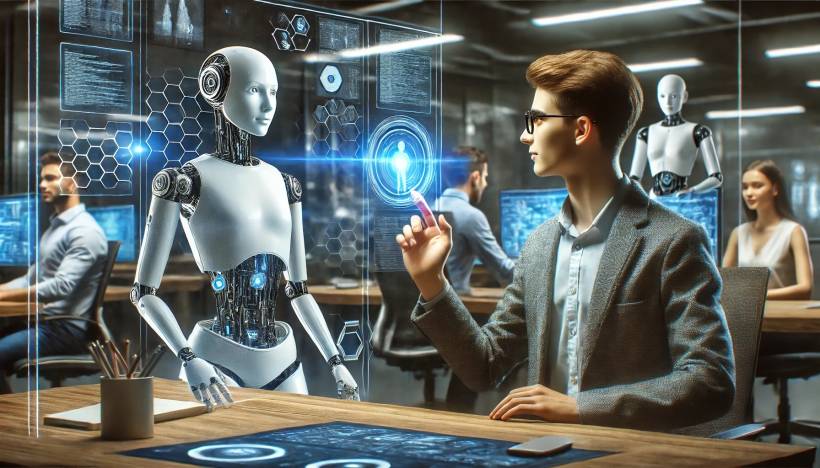Many workplace supervisors struggle to manage young employees, often criticizing them for being too sensitive, lacking professionalism, and having unrealistic expectations. A recent survey even reveals that some managers would prefer working with robots over young graduates.
The growing tension between managers and young employees is reflected in a striking statistic: 37% of employers would prefer to work with artificial intelligence (AI) rather than hire a Gen Z employee, according to a survey by Hult International Business School, as reported by Forbes. This preference stems from widespread stereotypes about young professionals. While Gen Z is valued for its digital fluency and adaptability, they are also often perceived as unpredictable, individualistic, resistant to authority, and overly focused on maintaining a strict work-life balance.
However, these generalizations are not supported by evidence. A January 2024 study by the French think tank Terra Nova and the employment association Apec found that young professionals approach work similarly to older generations. Employees aged 18-29 value their careers just as much, if not more, than their older counterparts, but unlike previous generations, they are unwilling to sacrifice their well-being unless it aligns with their personal ambitions.
Managers, however, often find Gen Z employees more challenging to manage. Among their concerns, 60% cite a lack of real-world experience, over half believe young professionals struggle with teamwork, and 57% feel they lack a global perspective. Their interpersonal skills are also frequently questioned, and training them is seen as a costly investment—53% of managers feel that the resources required to train young hires outweigh their initial contributions.
AI: The Ideal Employee?
Given these challenges, AI appears to be an attractive alternative. Unlike human employees, AI requires no training, salary, or time off and can perform tasks with precision and efficiency. This push for optimization raises critical questions about the role of humans in a workforce increasingly shaped by automation.
But how do young employees view their own preparedness? Many acknowledge their shortcomings—nearly 85% feel their university education did not adequately prepare them for the workforce, with 87% believing their workplace training was lacking compared to their academic studies. More strikingly, 55% say their degrees provided no directly applicable skills for their jobs. This gap highlights the growing disconnect between academic programs and employer expectations in a rapidly evolving, technology-driven job market.
Managers' concerns about young workers reflect a significant shift in the workplace, emphasizing the need for mutual adaptation. Young professionals must familiarize themselves with workplace norms and expectations to integrate more seamlessly, while employers should refine their training and onboarding strategies to maximize their potential. Rather than a battle between humans and AI, the future of work may hinge on their ability to collaborate in a well-balanced and efficient way.





